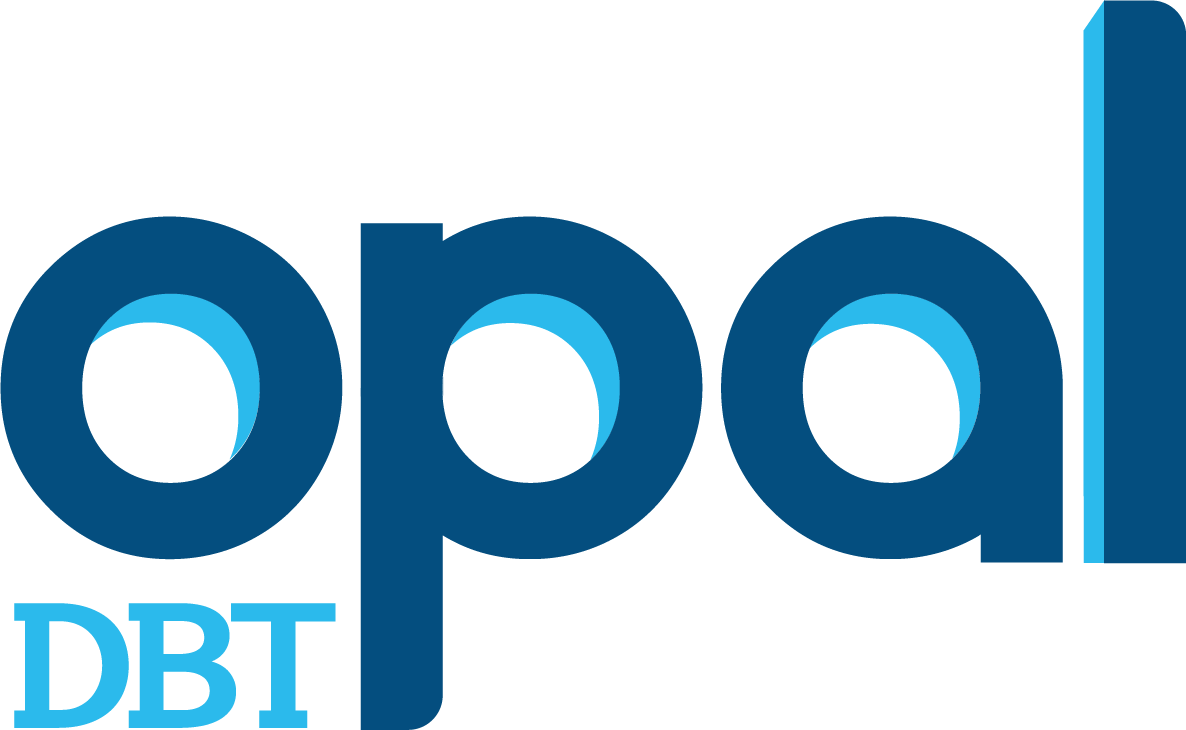What is DBT?
WHAT IS DIALECTICAL BEHAVIOR THERAPY (DBT)?
DBT is an evidence-based treatment that helps people who have difficulty controlling their emotions and behaviors. It was created by Marsha Linehan, PhD, and combines strategies for acceptance and change to make meaningful impact in people’s lives.
DBT teaches clients to identify problem behaviors and replace them with skillful and more effective responses. It helps people create a more balanced and fulfilling life.
-
Two opposites can be true at the same time, and when considered together, can create a new truth and a new way of viewing the situation.
There is always more than one way to think about a situation.
-
DBT improves the functioning of many teens and adults who struggle with cognitive, emotional, and behavioral dysregulation- difficulty managing thoughts, feelings, and urges- even those who experience multiple concerns at once.
DBT Skills focus on increasing effectiveness and resilience. They are helpful for individuals with a variety of clinical and non-clinical concerns; they are also beneficial for families with high levels of conflict. Almost everyone could benefit from learning these skills!
-
DBT Skills Training is the mode by which clients learn and practice new coping strategies. Skills Training sessions are not a replacement for individual therapy; they are an evidence-based adjunct. Clients in OPAL DBT's Skills Training program may choose to work with an individual therapist outside of OPAL.
The standard Skills Training cycle follows a 24-session curriculum. Skills are organized into these 5 modules (categories):
– Core Mindfulness (increase awareness and clarity in the present moment)
– Distress Tolerance (live without being ruled by emotions, thoughts, and urges)
– Emotion Regulation (experience a full range of emotions, decrease vulnerability to negative emotion)
– Interpersonal Effectiveness (improve and effectively navigate relationships)
– Walking the Middle Path (balance extreme thinking and manage conflict within families and environments)
The DBT Skills Training curriculum addresses challenges including:
– Poor Self-Awareness (e.g., identity, values, etc.)
– Impulsivity (e.g., self-injurious behaviors, substance abuse, suicidal gestures, emotional eating etc.)
– Extreme Emotionality (e.g., depression, intense anger, anxiety, hopelessness, suicidal ideation)
– Chaotic Relationships with peers and family members
– Rigid or Unrealistic Thinking
Each DBT Skills Training session includes a didactic presentation and review of homework from the previous session. Skills training is typically conducted in a group format.
-
DBT Skills Training is often presented as an adjunct to current individual therapy. That is, people may participate in the Skills Training sessions while continuing to work with an individual therapist who may not be trained in DBT.
Most clients who are referred for DBT are working hard to succeed in their lives, and yet are struggling in some way(s). For these individuals, learning new strategies to manage emotions, thoughts, and urges is a key component to successful treatment. DBT Skills Training, typically conducted in a group, is the most effective way to teach and reinforce new strategies.
-
Comprehensive, or full-package, DBT incorporates multiple modalities of focused treatment. In addition to DBT Skills Training, comprehensive clients participate in individual DBT therapy and receive support between sessions in the form of on-call phone coaching. Therapists who provide comprehensive DBT engage in weekly consultation meetings to support each other and ensure fidelity to the treatment model.
Comprehensive DBT for Adolescents also involves a parent in the Skills Training program and includes targeted parent coaching.
-
DBT therapists and skills trainers understand that lives of emotionally distressed people are painful as they are currently being lived. The parents/guardians and family members of an emotionally distressed person can also experience intense emotions and pain.
DBT for Adolescents recognizes that teens primarily function within their home environment. For this reason, Skills Training involves teaching both the teen and a parent or caregiver.
OPAL's DBT for Young Adults does not include a parent or caregiver in Skills Training sessions. If parents of young adults would like support, OPAL clinicians may offer separate parent skills training or individual therapy.
-
DBT Skills trainers understand that lives of emotionally distressed adolescents and their families are painful as they are currently being lived.
As adolescents primarily function within their home environment, Skills Training in DBT for adolescents teaches both the teen and a parent or caregiver. Typically, skills training is presented in the form of Multi-Family Group.
-
Comprehensive Adolescent DBT includes all aspects of standard Comprehensive DBT: Individual DBT sessions for the teen, DBT Skills Training (with both the teen and a parent or caregiver), and on-call Phone Coaching for the teens to support and generalize skill usage.
Parents with a teen in Comprehensive DBT receive additional support: they are assigned a parent consultant who provides consultation sessions and on-call Parent Phone Coaching for the parent to generalize their own skill usage in relation to their teen.
Therapists who provide Comprehensive Adolescent DBT also engage in weekly consultation meetings to support each other and ensure fidelity to the treatment model.
For more information on DBT, visit WWW.BEHAVIORALTECH.ORG
Adapted From: DBT Skills Manual for Adolescents, by Jill H. Rathus and Alec L. Miller. Copyright 2015 by The Guilford Press.
